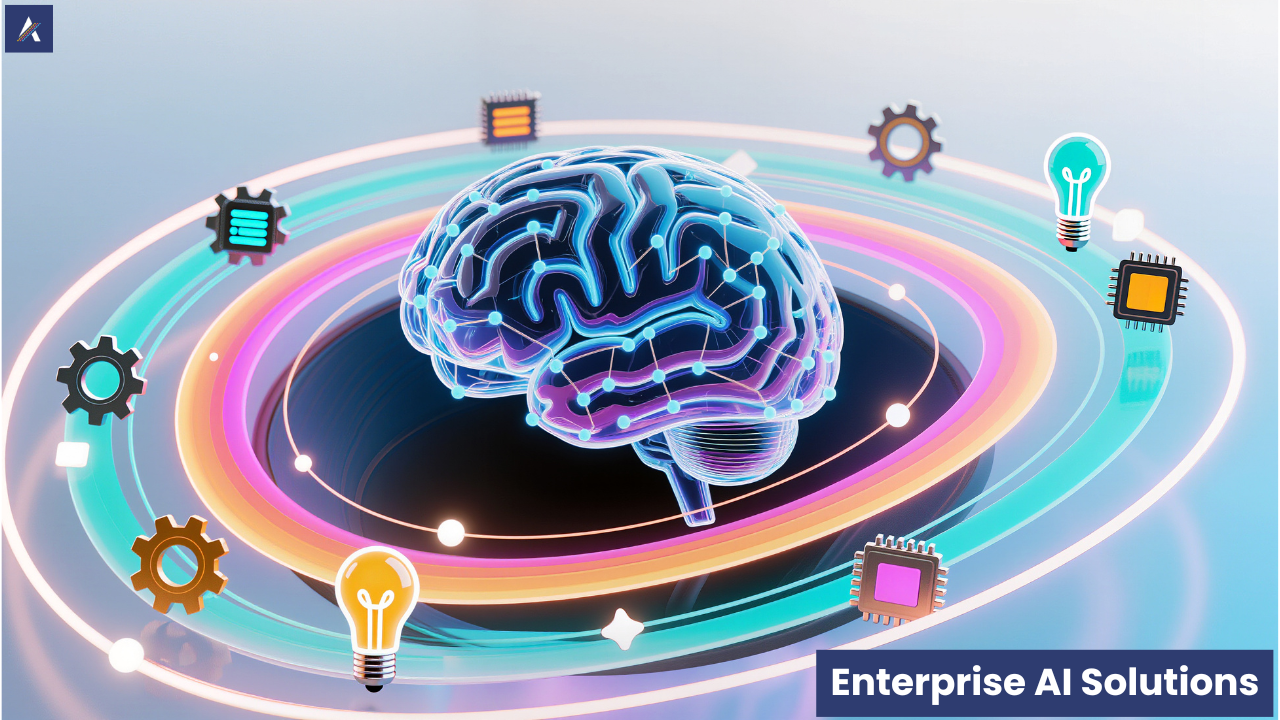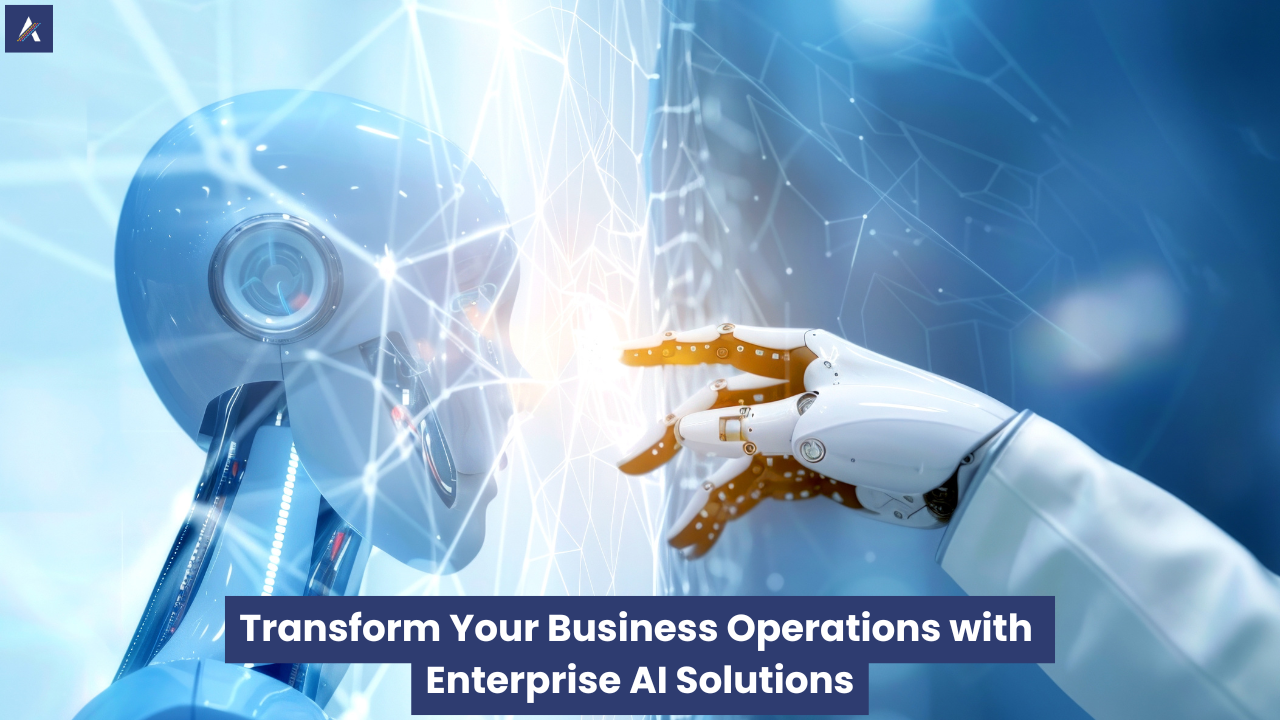Enterprise AI represents a paradigm shift in how businesses approach complex challenges and operational efficiency. Unlike traditional AI implementations that focus on single-use cases, enterprise AI solutions integrate multiple artificial intelligence technologies to create comprehensive systems that scale across entire organizations. These sophisticated platforms combine machine learning, natural language processing, computer vision, and predictive analytics to deliver transformative business outcomes.
Companies implementing enterprise AI solutions report significant improvements in decision-making speed, operational efficiency, and competitive positioning. The technology has evolved from experimental implementations to mission-critical infrastructure that drives revenue growth and cost optimization across industries.
What Makes Enterprise AI Different
Enterprise AI solutions differ fundamentally from consumer-facing AI applications. These systems are designed to handle the complexity, scale, and security requirements of large organizations while delivering measurable business value.
Security and Compliance at the Core
Enterprise environments demand robust security frameworks that protect sensitive business data while maintaining operational accessibility. Enterprise AI solutions incorporate advanced encryption, access controls, and audit trails that meet industry-specific compliance requirements such as GDPR, HIPAA, and SOC 2 standards.
Seamless Integration Capabilities
Modern businesses operate with diverse technology ecosystems. Enterprise AI solutions feature comprehensive integration frameworks that connect with existing ERP systems, databases, and third-party applications without disrupting current workflows. This interoperability ensures organizations can leverage AI capabilities without costly infrastructure overhauls.
Scalable Architecture Design
Enterprise AI platforms are built to grow with organizational needs. They support everything from departmental pilot projects to enterprise-wide deployments, automatically scaling computational resources and maintaining performance as data volumes and user bases expand.
User-Centric Interface Design

Despite their technical sophistication, enterprise AI solutions prioritize user experience. Intuitive dashboards and visualization tools enable business users to interact with AI-powered insights without requiring technical expertise, democratizing access to advanced analytics across organizations.
Core Technologies Powering Enterprise AI
Modern enterprise AI solutions leverage multiple complementary technologies to deliver comprehensive business intelligence and automation capabilities.
Machine Learning and Predictive Analytics
Advanced algorithms analyze historical business data to identify patterns and predict future trends. These capabilities enable organizations to anticipate market changes, optimize inventory levels, and make proactive strategic decisions rather than reactive adjustments.
Natural Language Processing
NLP technologies enable enterprise AI solutions to process and understand human language at scale. This capability transforms customer service operations, automates document processing, and enables voice-activated business intelligence queries.
Computer Vision Applications
Visual recognition technologies analyze images, videos, and documents to extract valuable business information. Manufacturing companies use computer vision for quality control, while retail organizations leverage it for inventory management and customer behavior analysis.
Deep Learning Networks
Neural networks process complex data relationships that traditional algorithms cannot handle. Deep learning enables enterprise AI solutions to recognize subtle patterns in customer behavior, predict equipment failures, and optimize supply chain operations.
Transformative Business Benefits
Organizations implementing enterprise AI solutions experience measurable improvements across multiple business functions, creating compound value that extends far beyond individual use cases.
Enhanced Decision-Making Capabilities
Enterprise AI solutions process vast amounts of business data in real-time, providing executives with comprehensive insights for strategic decision-making. These systems analyze market trends, customer behavior, and operational metrics simultaneously, enabling data-driven decisions that improve business outcomes.
Companies report 25% faster decision-making processes when using enterprise AI solutions, with improved accuracy in forecasting and resource allocation. The technology eliminates guesswork from strategic planning by providing quantifiable insights based on comprehensive data analysis.
Process Automation and Efficiency
Repetitive tasks that consume valuable employee time become automated through enterprise AI solutions. These systems handle data entry, report generation, compliance monitoring, and routine customer inquiries, freeing human resources for higher-value strategic activities.
Organizations typically see 40% reduction in time spent on administrative tasks after implementing enterprise AI solutions. This efficiency gain translates directly into cost savings and improved employee satisfaction as workers focus on more engaging, strategic responsibilities.
Advanced Analytics and Insights
Enterprise AI solutions transform raw business data into actionable intelligence. These systems identify trends, anomalies, and opportunities that human analysts might miss, providing competitive advantages through superior market understanding and operational visibility.
The analytical capabilities extend beyond traditional business intelligence by incorporating external data sources, social media sentiment, and market indicators to provide comprehensive business context for strategic planning.
Strategic Implementation Framework
Successfully deploying enterprise AI solutions requires a structured approach that aligns technology capabilities with business objectives while managing organizational change effectively.
Establishing Clear Objectives
Organizations must define specific business outcomes they want to achieve through enterprise AI implementation. These objectives should be measurable, time-bound, and aligned with overall corporate strategy. Common goals include improving customer satisfaction scores, reducing operational costs, or accelerating product development cycles.
Successful implementations begin with pilot projects that demonstrate value quickly while building organizational confidence in AI capabilities. These initial successes create momentum for broader deployment across additional business functions.
Data Strategy and Infrastructure
Enterprise AI solutions require high-quality, accessible data to deliver accurate insights and predictions. Organizations must assess their current data infrastructure, identify gaps, and implement necessary improvements before deploying AI systems.
Data governance becomes critical as enterprise AI solutions access information across multiple departments and systems. Establishing clear data ownership, quality standards, and security protocols ensures AI systems operate with reliable, consistent information.
Building Cross-Functional Teams
Successful enterprise AI implementations require collaboration between technical teams, business users, and executive leadership. Data scientists provide technical expertise, business analysts ensure practical applicability, and executives provide strategic direction and resource allocation.
Training programs help employees understand AI capabilities and limitations while building confidence in human-AI collaboration. Change management initiatives address concerns about job displacement by focusing on how AI enhances human capabilities rather than replacing them.
Development and Testing Phases
Enterprise AI solutions undergo rigorous development cycles that include data preparation, model training, validation, and integration testing. These phases ensure systems meet performance requirements and integrate seamlessly with existing business processes.
Pilot implementations allow organizations to test enterprise AI solutions in controlled environments before full deployment. These trials identify potential issues, validate expected benefits, and provide valuable feedback for system optimization.
Deployment and Optimization
Rolling out enterprise AI solutions across entire organizations requires careful planning and phased implementation strategies. Organizations typically begin with departments that have clear use cases and strong executive support before expanding to additional areas.
Continuous monitoring and optimization ensure enterprise AI solutions maintain peak performance as business conditions change. Regular model updates, performance assessments, and user feedback incorporation keep systems aligned with evolving business needs.
Future-Ready Business Operations
Enterprise AI solutions represent more than technological upgrades—they fundamentally transform how organizations operate, compete, and grow. Companies that successfully implement these systems position themselves for sustained competitive advantage in increasingly digital markets.
The integration of artificial intelligence into core business processes creates opportunities for innovation that extend far beyond current capabilities. As enterprise AI solutions continue evolving, they will enable new business models, customer experiences, and operational efficiencies that reshape entire industries.
Organizations considering enterprise AI solutions should begin with clear strategic objectives, invest in proper data infrastructure, and build teams capable of managing human-AI collaboration effectively. The businesses that act now will be best positioned to leverage these transformative technologies as they continue advancing.
The question isn’t whether your organization will eventually use enterprise AI solutions—it’s whether you’ll be among the early adopters who gain competitive advantages or among those playing catch-up in an AI-driven business landscape.

Sandeep Kumar is the Founder & CEO of Aitude, a leading AI tools, research, and tutorial platform dedicated to empowering learners, researchers, and innovators. Under his leadership, Aitude has become a go-to resource for those seeking the latest in artificial intelligence, machine learning, computer vision, and development strategies.


